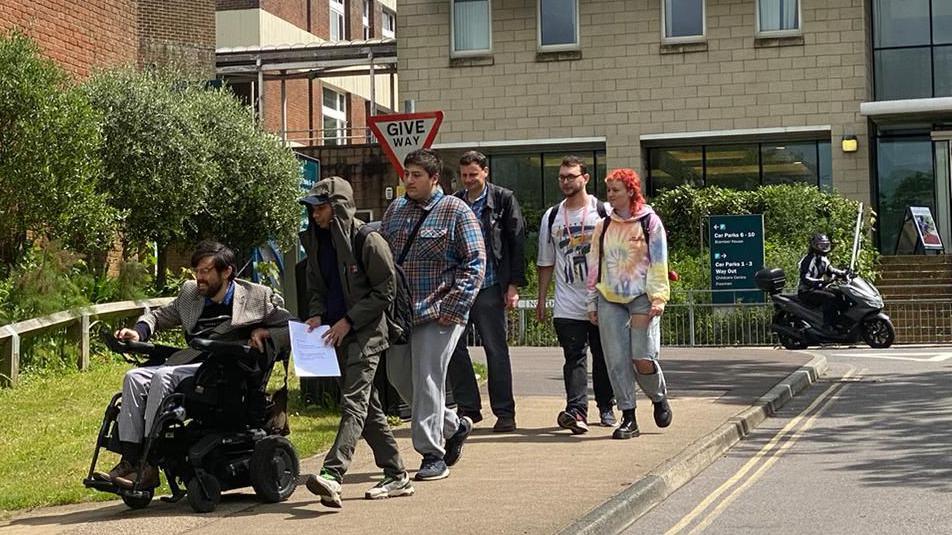Nigeria acts over students told to leave UK
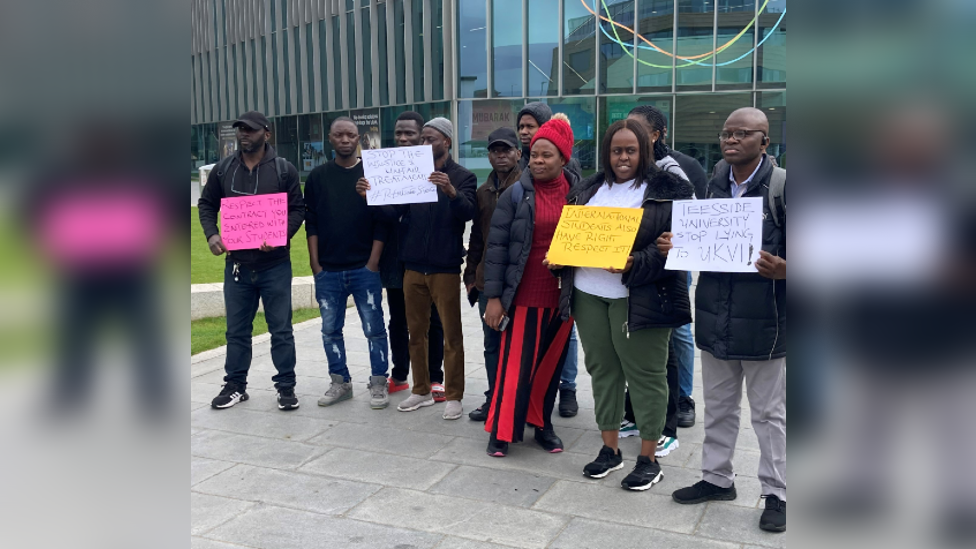
Nigerian students called for an intervention as they protested outside of Teesside University
- Published
Nigeria's federal government has stepped in after crisis-hit international students were ordered to leave the UK.
Nigerian students at Teesside University were thrown off courses and reported to the Home Office after a currency crisis left them struggling to pay fees on time, the BBC found.
A delegation led by a Nigerian ambassador will now meet with university management "to intervene on allegations of unfair and unjust deportation orders", a spokesman for the Nigerians in Diaspora Commission (NIDCOM) said.
The Middlesbrough-based university said it is supporting students and is open to the meeting.
The intervention comes after masters degree students were blocked from studies and reported to the Home Office by the university.
They had struggled to pay tuition fees on time after the value of Nigeria's naira plummeted amid an economic crisis, wiping out savings and substantially altering budgets.
Earlier this month, a university spokesman told the BBC failure to pay was a breach of visa sponsorship and that it had "no choice" but to alert the Home Office, which said sponsorship decisions rested with the institution.
'Justice and fairness'
Some students said they were left feeling suicidal after falling into arrears and being ordered to leave.
A food charity said 75% of clients were now Nigerian students struggling to afford the cost of living.
Students at other universities, including Sussex, have also been hard hit by the currency crisis.
The Nigerian government's decision to intervene was taken following a recent meeting between some affected students and NIDCOM chair Hon. Abike Dabiri-Erewa, Nigerian High Commission UK ambassador Christian Okeke and Yemi Soile, president of Nigerian Students Union UK.
The virtual meeting, held on Sunday, saw students urged to "remain calm and not take laws into their hands", as an appeal was made to the university to treat students with "justice and fairness".
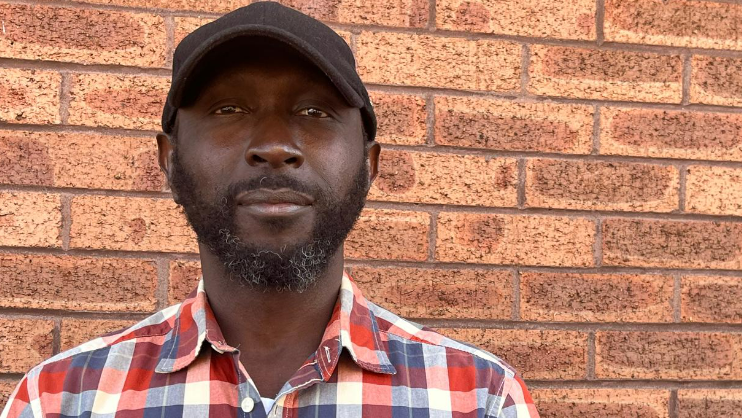
Jude Salubri travelled between Teesside and Liverpool every weekend to work 18 hours in an attempt to pay university fees
Jude Salubri, one of the students who has received a letter telling him to leave the UK, said he welcomed the intervention but was not convinced it could make a difference.
"I think it will be a persuasive appeal, but I'm not sure they can force the university to do anything," he said.
"Our lives are still in limbo while we wait for decisions to be made."
A university spokesman said it is offering case by case support to students affected by the economic crisis in Nigeria.
Follow BBC Tees on X (formerly Twitter), external, Facebook, external and Instagram, external. Send your story ideas to northeastandcumbria@bbc.co.uk.
More stories from BBC North East and Cumbria
- Published31 May 2024
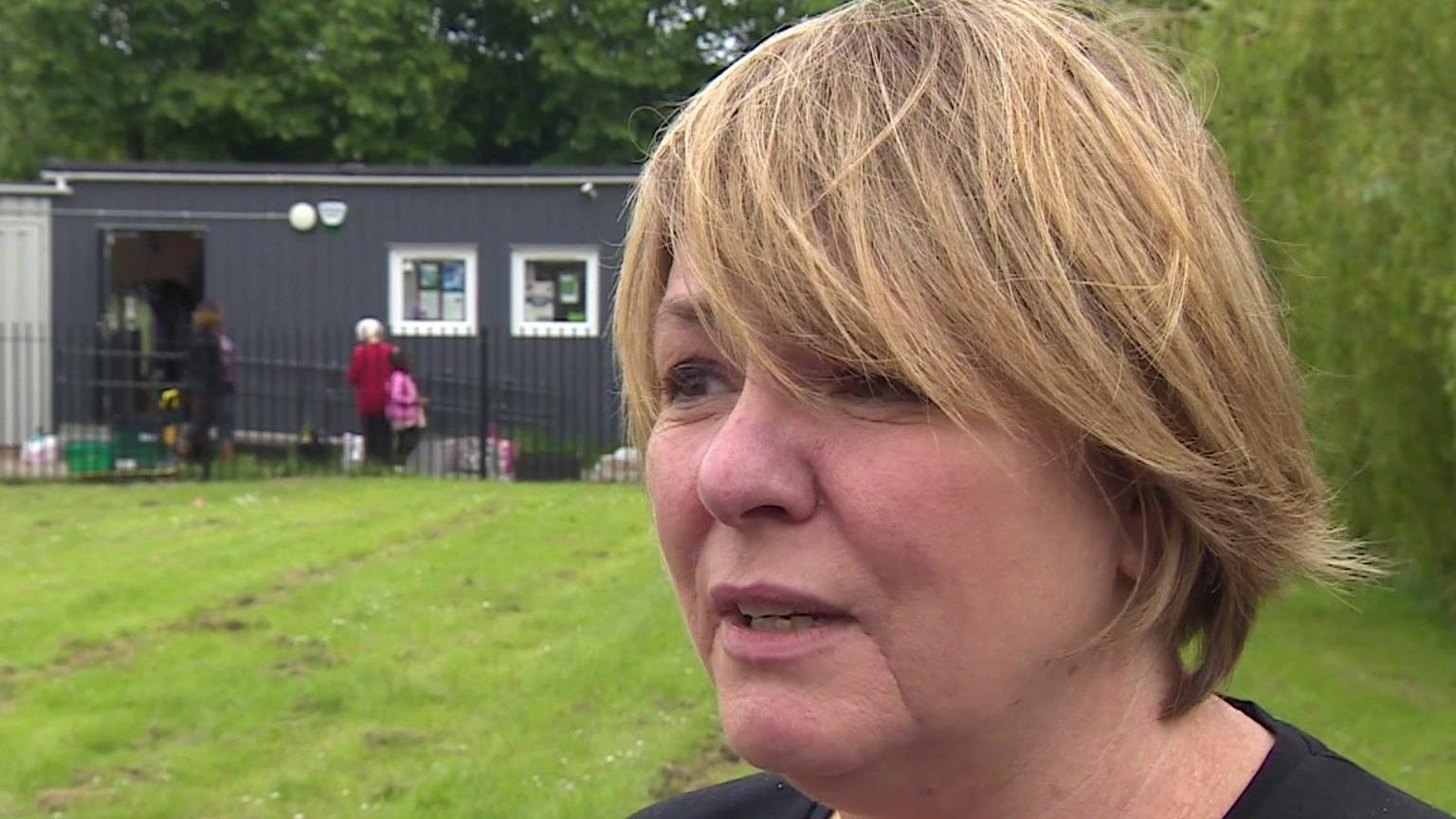
- Published22 May 2024
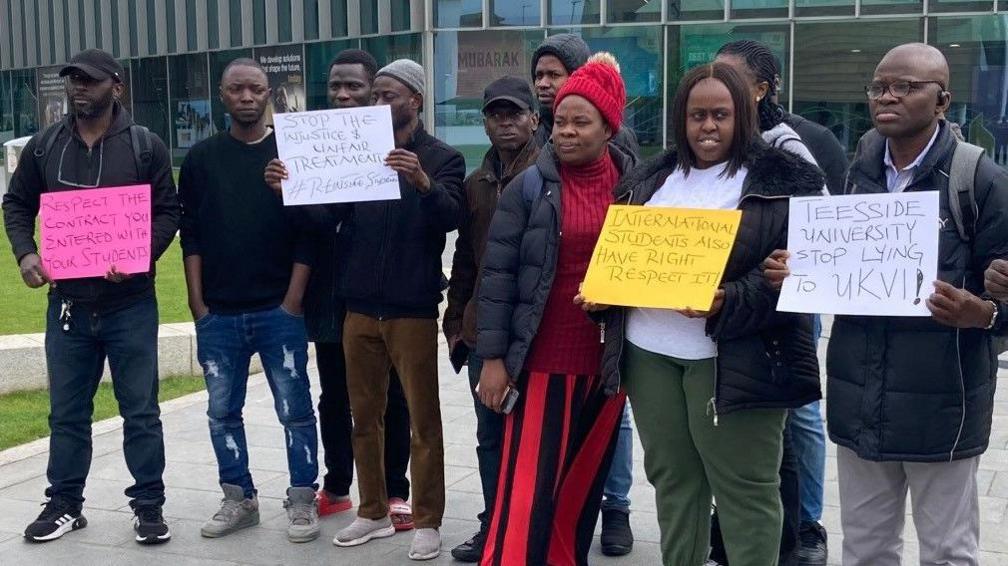
- Published29 May 2024
